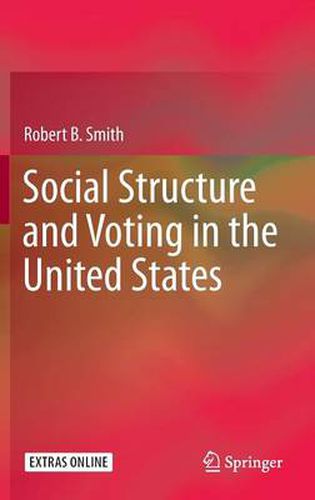Readings Newsletter
Become a Readings Member to make your shopping experience even easier.
Sign in or sign up for free!
You’re not far away from qualifying for FREE standard shipping within Australia
You’ve qualified for FREE standard shipping within Australia
The cart is loading…






This title is printed to order. This book may have been self-published. If so, we cannot guarantee the quality of the content. In the main most books will have gone through the editing process however some may not. We therefore suggest that you be aware of this before ordering this book. If in doubt check either the author or publisher’s details as we are unable to accept any returns unless they are faulty. Please contact us if you have any questions.
This book analyzes practical and moral influences on voting decisions. Undermining the widespread assumption that economic self-interest is the key determinant of voting choices, it discovers that moral considerations rooted in religious traditions are often the more decisive. This finding is confirmed through a close analysis of tangible problems, such as child neglect and crime, problems which one would expect to trouble practical voters. Further, this book suggests that political ideologies influence party affiliation, rather than the other way around. It defines four categories of states in terms of human development and income equality-South, Heartland, postindustrial, and balanced.
It then explains why political color (red, purple, or blue) and societal problems vary across these categories. Voters’ moral ideologies, it shows, combine with a state’s measure of income equality and human development to shape a state’s readiness to pursue practical solutions to societal problems. Finally, it shows that moral ideologies of the religious right and authoritarianism, two very different concepts, are in fact intertwined empirically.
This book thus suggests that education-a key driver of human development, anti-authoritarianism, and deliberative voting-should begin in preschools that are both nurturant and instructive.
$9.00 standard shipping within Australia
FREE standard shipping within Australia for orders over $100.00
Express & International shipping calculated at checkout
This title is printed to order. This book may have been self-published. If so, we cannot guarantee the quality of the content. In the main most books will have gone through the editing process however some may not. We therefore suggest that you be aware of this before ordering this book. If in doubt check either the author or publisher’s details as we are unable to accept any returns unless they are faulty. Please contact us if you have any questions.
This book analyzes practical and moral influences on voting decisions. Undermining the widespread assumption that economic self-interest is the key determinant of voting choices, it discovers that moral considerations rooted in religious traditions are often the more decisive. This finding is confirmed through a close analysis of tangible problems, such as child neglect and crime, problems which one would expect to trouble practical voters. Further, this book suggests that political ideologies influence party affiliation, rather than the other way around. It defines four categories of states in terms of human development and income equality-South, Heartland, postindustrial, and balanced.
It then explains why political color (red, purple, or blue) and societal problems vary across these categories. Voters’ moral ideologies, it shows, combine with a state’s measure of income equality and human development to shape a state’s readiness to pursue practical solutions to societal problems. Finally, it shows that moral ideologies of the religious right and authoritarianism, two very different concepts, are in fact intertwined empirically.
This book thus suggests that education-a key driver of human development, anti-authoritarianism, and deliberative voting-should begin in preschools that are both nurturant and instructive.